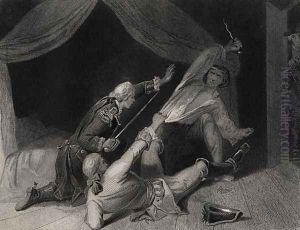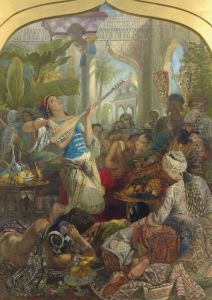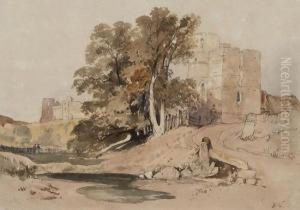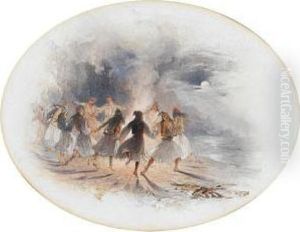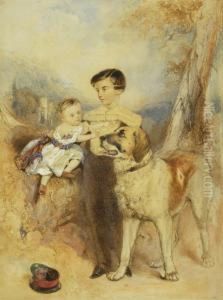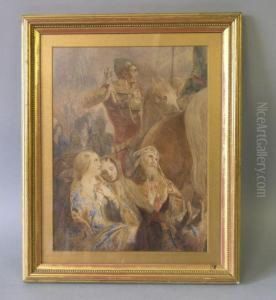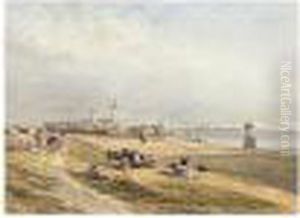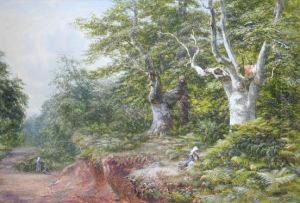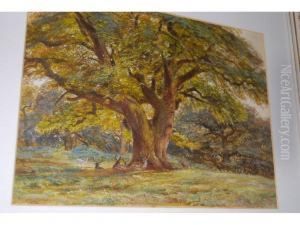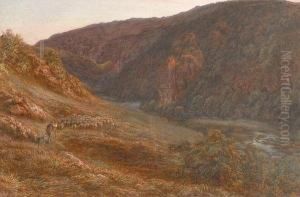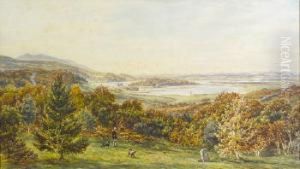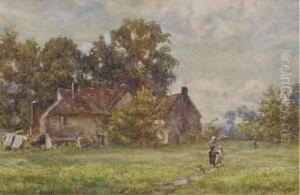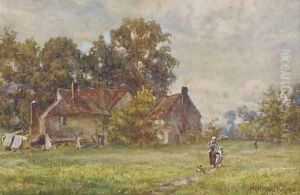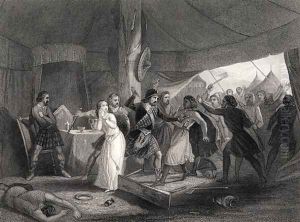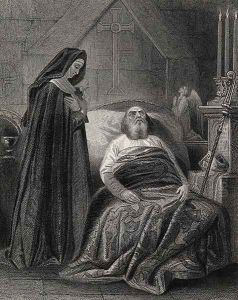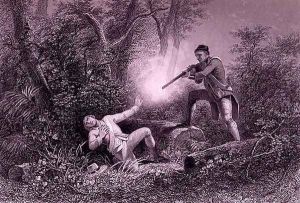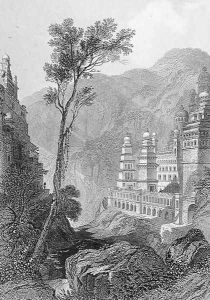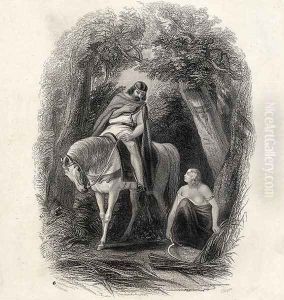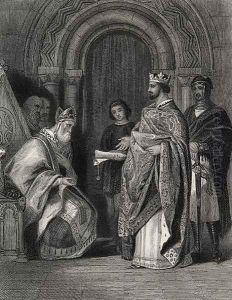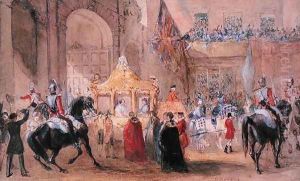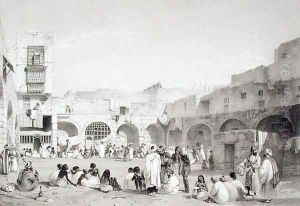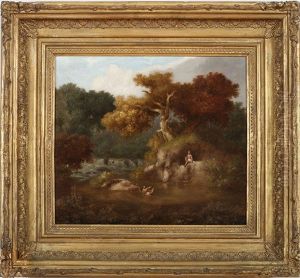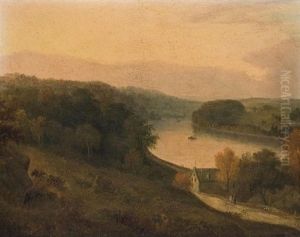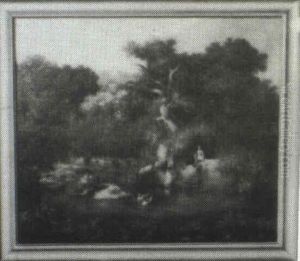Henry Warren Paintings
Henry Warren was a British artist known primarily for his work as a portrait painter and illustrator. Born on December 17, 1794, in London, Warren showed an early talent for art. He embarked on his career as a portrait artist, which was a highly sought-after profession at the time, due to the demand from the burgeoning middle class and the aristocracy.
Warren became president of the New Society of Painters in Water Colours in 1831, a position he held for many years. The society, which later became the Royal Institute of Painters in Water Colours, was founded to promote the art of watercolor painting, which had been somewhat overshadowed by oil painting.
Throughout his career, Warren worked on a variety of projects, including book illustrations. He was particularly known for his delicate watercolor techniques and the ability to capture the likeness and character of his sitters. His illustrations often appeared in books of the period, contributing to the popularization of literary works through visual art.
Henry Warren's contributions to British art were significant during the 19th century, particularly in the field of watercolors. He was admired for his skill in capturing the essence of his subjects and for his leadership in the art community. Warren passed away on January 21, 1879, leaving behind a legacy of artistic achievement and influence in the world of British watercolor painting.
